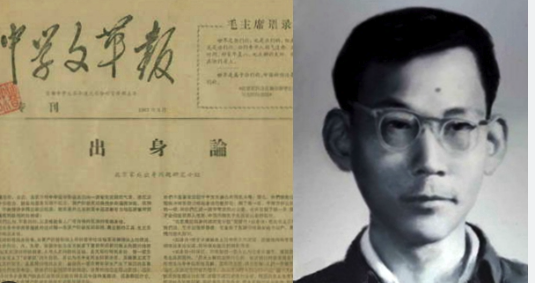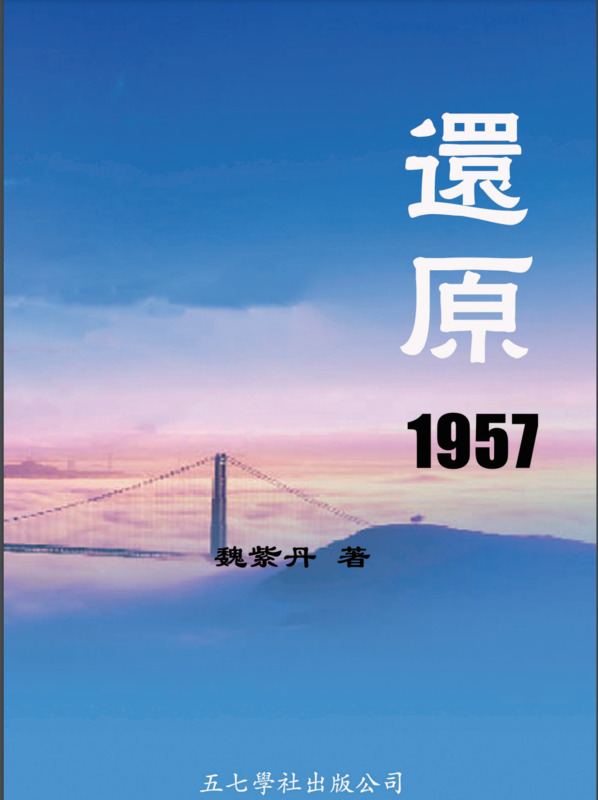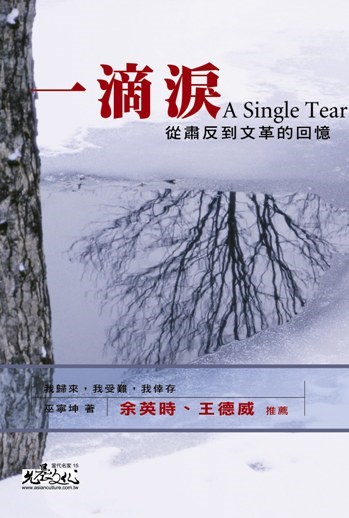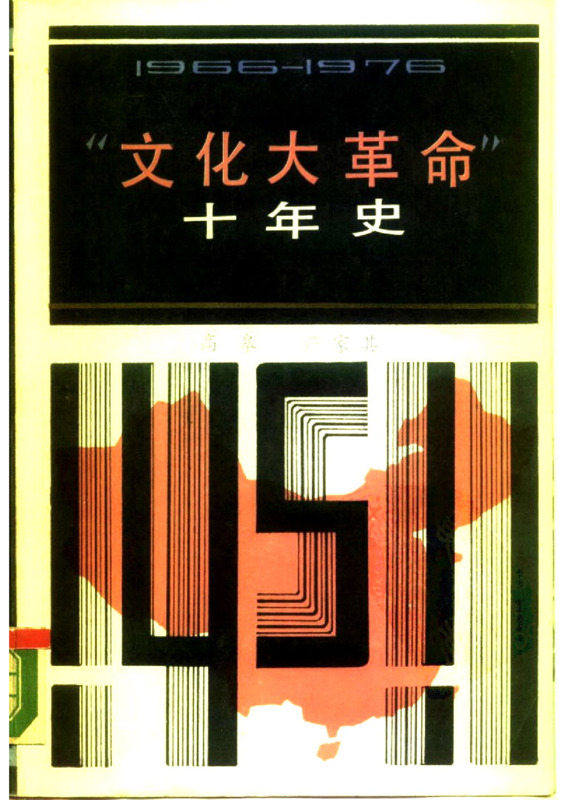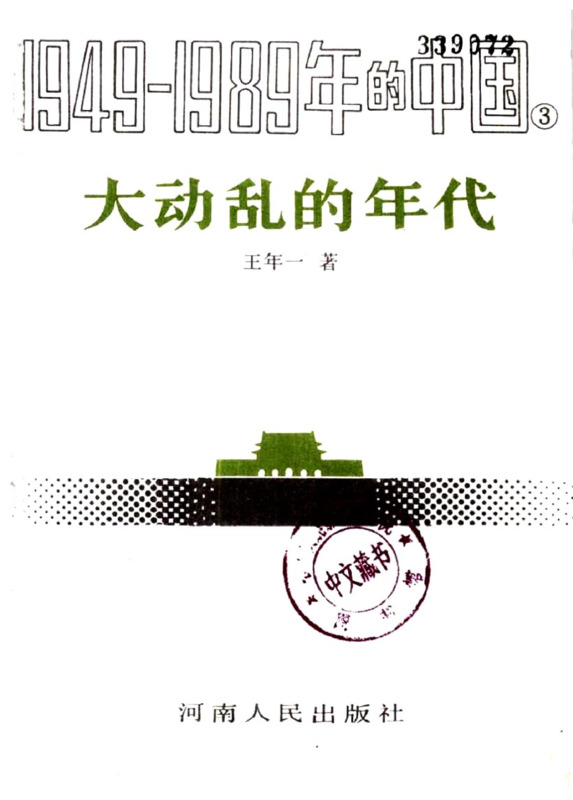Explore the collection
Showing 131 items in the collection
131 items
Book
New Biographies of the 1957 Rightists
According to official CCP statistics, some 550,000 people were directly labeled as rightists and persecuted during the Anti-Rightist campaign. These people, as well as others implicated in the campaign, are mostly unknown, except for a very few. The author, Shen Yuan, who was also labeled as a rightist when he was a university student in 1958, devoted himself to collecting and researching historical data on the anti-rightist campaign. He has compiled a book entitled Biographies of the 1957 Rightists, which attempts to present the truth about the Anti-Rightist campaign and its victims. The book is divided into four volumes of about 1.2 million words, containing the stories of about 600 rightists and about 240 historical photographs. 2016 marked the 60th anniversary of the Anti-Rightist campaign, and Shen Yuan used the original book as the basis for his New Biographies of the 1957 Rightists, expanding the number of people included to 1,588. Sha Yexin and Wu Yisan were both involved in the compilation of this book.
Book
Newly Discovered Mao, The: Volume I
Author Wang Ruoshui spent his early years studying philosophy at Peking University. He served as deputy editor-in-chief of the Communist Party newspaper “People's Daily” and was able to participate in high-level ideological discussions, gaining a deep understanding of Mao Zedong as a person and of his thought. He was one of the rare intellectuals within the CCP system who had an independent personality as well as the ability to think for himself. After his death from cancer, his wife, Feng Yuan, helped put together this posthumous book. Published by Ming Pao Press in 2002, it has been described as "the first and most comprehensive and in-depth discussion of Mao Zedong and his thought."
Book
Newly Discovered Mao, The: Volume II
Author Wang Ruoshui spent his early years studying philosophy at Peking University. He served as deputy editor-in-chief of the Communist Party newspaper "People's Daily" and was able to participate in high-level ideological discussions, gaining a deep understanding of Mao Zedong as a person and his thought. He was one of the rare intellectuals within the CCP system who had an independent personality as well as the ability to think for himself. After his death from cancer, his wife, Feng Yuan, put together this posthumous book. Published by Ming Pao Press in 2002, it has been described as "the first and most comprehensive and in-depth discussion of Mao Zedong and his thought.
Article
On Family Background
Yu Luoke (May 1, 1942 - March 5, 1970): Worker, freelance writer, and public intellectual.
Yu was born into an educated family in northeastern China, which for a period of time was under Japanese occupation. His father studied on a state scholarship in Waseda University in Tokyo, while his mother came from a wealthy family in Beijing and studied business at Tokyo Girls High School. When the two returned to China, they went into business, married, and had three children.
When the CCP took power, the family was declared part of the “bourgeois class” and like other “black elements”--classes of people who the party declared to be enemies–was persecuted. The father was arrested in 1952 on charges of tax evasion and released. In 1957, Yu Luoke’s parents were declared Rightists and sent to labor camps. In 1959, Yu graduated from high school with highest honors but as the offspring of an undesirable class was not permitted to attend university. In 1961, he was allowed to work on a farm in a Beijing suburb, where he realized that class identity was also important in rural China–landlords and their children were even beaten to death. In 1964 he returned to the city and apprenticed at a machinery factory. Yu realized that he was part of an untouchable caste in Maoist China and would be condemned forever, no matter what he believed or how hard he worked.
These experiences were the genesis of Yu’s essay, which became one of the most famous texts of the Mao era. Yu wrote it at the start of the Cultural Revolution. The ten-thousand character essay is called chushenglun, or “On Family Background” (sometimes translated as “On Class Origins"). In it, he warned that the “five black categories'' were becoming a permanent underclass, while China’s rulers were from the hongwulei, or “five red categories:” poor and lower-middle peasants, workers, revolutionary soldiers, revolutionary officials, and revolutionary martyrs, including their family members, children, and grandchildren. He warned of a new ruling class based on bloodlines.
The essay was published in a journal that Yu and his brother Yu Luowen called the "Journal of Secondary School Cultural Revolution." In January 1967, about thirty thousand copies were printed, and the young men began distributing them around the capital, selling them for two cents a copy. They sold out in a few hours. In February, they printed another eighty thousand copies.
Soon, hundreds of letters each day arrived at Yu Luoke’s local post office—so many that he had to go collect them in person. The missives detailed how the Communists’ policies had caused them to suffer. People traveled from across China to visit them at their home, excited that someone finally had uncovered how the Chinese Communist Party ruled. The editorial board was expanded to twenty people, and the group sponsored debates and seminars.
The Journal was closed down in April 1967. Yu Luoke began to write on economic inequality. In January 1968, he was arrested. Two years later, on 5 March 1970, Yu was executed by firing squad at Beijing Workers Stadium.
Book
Pastor Wang Yi's Anthology: Carrying the Cross - A History of Chinese Family Churches
Wang Yi, of Chengdu, Sichuan Province, is a well-known Chinese intellectual who later became a pastor. The Early Rain Reformed Church that he led was one of the most famous unregistered churches in China. The church occupied the floor of an office building in Chengdu and had its own bookstore, seminary, and pre-school. It regularly had services of hundreds of people. Later, the church had internal conflicts, while at the same time Wang became more outspoken in his criticism of the government. In 2018, he criticized Xi Jinping for abolishing term limits and allowing himself to become ruler of China for life. Pastor Wang was sentenced to nine years in prison in 2019.
This book is based on the recordings of Pastor Wang's classes at Early Rain in 2018. The first five chapters were reviewed by Pastor Wang himself, but he was arrested before he could complete the review of the last five chapters. The essays cover key issues that concerned Wang, including the role of the church in China as a city on the hill, the role of the Reform church in China, and the history of unregistered churches in China.
Book
Personal experiences of political movements
This book is a collection of many authors, most of whom were former senior officials of the Communist Party of China, such as Li Rui, Xiao Ke and others. Through the author's recollections, we can learn about the political movements of the Mao Zedong era, including the Cultural Revolution, the Anti-Rightist Movement, etc., as well as the details of many unjust cases, such as the Hu Feng case, which is quite convincing. This book was published by the Central Compilation and Translation Bureau Press in mainland China in 1998.
Book
Rebellion in All Its Shapes and Colors --The Formation and Evolution of the Spiritual Qualities of the Red Guards
This book seeks to reveal the characteristics of the Red Guard movement through the study of the Red Guard's spiritual qualities, such as the mode of action of the rebellion, the formation of factions and regional differences, as well as the types of Red Guard ideology and the trend of change before and after the Cultural Revolution, etc. The author is a peer of the Red Guard and has accumulated first-hand information on the subject through extensive interviews and documentary research. The author of this book, Xu Youyu, is a peer of the Red Guards, and has accumulated first-hand information about the research through a large number of interviews and documentary research. At present, there are very few studies that analyze the formation of the Red Guards' mentality based on oral data and case studies. Therefore, this book is of great reference value to researchers in this field. This book was published by the Chinese University of Hong Kong Press in 1999.
Book
Rethinking China's Democracy Movement
Author Hu Ping was involved in the Xidan Democracy Wall movement in the late 1970s and now lives in the United States.
He has successively chaired the pro-democracy publications <i>China Spring</i> and <i>Beijing Spring</i>. This book, published in 1992, analyzes the reasons for the failure of the June Fourth Movement and summarizes the lessons learned. The last two chapters suggest how to continue the pro-democracy movement in the future.
Book
Revisiting 1957
<i>Revisiting 1957</i> is not just about the history of the Anti-Rightist Campaign but is also a theoretical reflection on that history. Written by Wei Zidan (the penname for Wei Liyan), the book has three sections: upper, in which the author discusses philosophical problems of the campaign; middle, in which he discusses the origins of the campaign; and lower, which contains his thoughts on lessons for the future. In Wei's view, the people who were declared rightists stood up for freedom of speech. The campaign, therefore, was an assault on freedom of expression and resulted in a human rights catastrophe for China. The book also has an eleven-part appendix with reflections on miscellaneous events.
Wei Zidan was born in Henan Province in 1933 and was a teacher in the Anyang Middle School. He himself was labeled a rightist and brings a unique insider's account of the movement but unlike some personal accounts of suffering, Wei also brings a more analytical approach to the issue.
After moving to the United States in his later years, he collected information and found the freedom to complete this book. Published in Hong Kong in 2013 by the May 7 Society Press.
Book
Science, Democracy, Rationality: Xu Liangying's Anthology
Chinese intellectual Xu Liangying is a scholar of the history of scientific thought and an active warrior in defense of human rights. He weathered China's most extreme political storms and began to speak out again after China opened up slightly in 1977. This book collects his political speeches between 1977-1999. Originally published by Spiegel Publishing in Hong Kong in 2001, the book was later made into a PDF version by Xu Liangying's family in the hope that it would be circulated online to a wider audience.
Book
Seventy Years of the Chinese Communist Revolution
Professor Chen Yongfa's book examines the history of the Chinese Communist Party from the perspective of modern Chinese history. It divides it into three stages: revolutionary seizure of power, continuous revolution, and farewell revolution. It delves into three major issues in CCP history: nationalism, grassroots power structure, and ideological transformation and control. published by Taiwan's Linking Publishing in 2001.
Film and Video
Spark
<i>Spark</i> tells the story of a group of young intellectuals who risked their lives to voice their opinions about the Chinese Communist Party in the 1950s and 1960s. Following the Hundred Flowers Campaign of 1957, many intellectuals were branded as Rightists and banished to work and live in rural China. A group of students from Lanzhou University were among those sent to the countryside. There, they witnessed mass famine which resulted from government policies to collectivize agriculture and force industrialization in rural China. Shocked and angered by the government’s lack of response to the Great Famine, these students banded together to publish <i>Spark</i>, an underground magazine that sought to alert the Chinese population of the unfolding famine. The first issue, printed in 1960, included poems and articles analyzing the root causes of failed policies. However, as the first issue of <i>Spark</i> was mailed and the second issue was edited, many of these students, along with locals who supported the team, were arrested. Some of the key members of the publication were sentenced to life imprisonment and later executed, while others spent decades in labor camps.
In this 2014 documentary, Hu Jie uncovers the stories of the people involved in the publication of <i>Spark</i>. He conducts interviews with former members of the magazine who survived persecution, and also shows footage of the manuscripts of the magazine. A digital copy of the original manuscript of the first volume of <i>Spark</i> is also held on our website.
This film was awarded the Special Jury Prize for Chinese Documentary at the 2014 Taiwan International Documentary Film Festival and the Award of Excellence in the Asian Competition. Later, it won the Independent Spirit Award at the Beijing Independent Film Festival.
Periodicals
Spark, Issue 1
<i>Spark</i> was an underground magazine that appeared in the Tianshui area of Gansu Province in northwestern China during the 1959-1961 Great Famine. The magazine was lost for decades but in the late 1990s began to be republished electronically, becoming the basis of documentary films, essays, and books.
In 1959, the Great Famine was spreading across China. It was witnessed by a group of Lanzhou University students who had been branded as Rightists and sent down to labor in the rural area of Tianshui. They saw countless peasants dying of hunger, and witnessed cannibalism.
Led by Zhang Chunyuan, a history student at Lanzhou University, they founded <i>Spark</i> in the hope of alerting people to the unfolding disaster and analyzing its root causes. The students pooled their money to buy a mimeograph machine, carved their own wax plates, and printed the first issue. The thirty-page publication featured Lin Zhao's long poem, "A Day in Prometheus's Passion." The first issue also featured articles, such as "The Current Situation and Duty," which dissected the tragic situation of society at that time and hoped that the revolution would be initiated by the Communist Party from within.
The students planned to send the magazine to the leaders of the provinces and cities with a view to correcting their mistakes. But before the first issue of Spark was mailed and while the second issue was still being edited, on September 30, 1960, these students in Wushan and Tianshui were arrested, along with dozens of local peasants who knew and supported them. Among them: Zhang Chunyuan was sentenced to life imprisonment and later executed; Du Yinghua, deputy secretary of the Wushan County Committee of the Chinese Communist Party, was sentenced to five years' imprisonment for having interacted with the students, and later executed. Lin Zhao was detained and also executed. Other key members, such as Gu Yan, Tan Chanxue, and Xiang Chengjian, were all sentenced to long years in labor camps.
In the 1990s, Tan Chanxue devoted herself to researching historical information and figures to bring this history to life. She found in her personnel file (<i>dan'an</i>)photographs of the magazine, as well as self-confessions and other evidence used in the students' trial. Eventually, the photos were collated into PDFs, which began to circulate around China.
Editors' note: This site the original handwritten version and a PDF of all the articles from the first issue of <i>Spark</i>. We will also make available transcripts of the essays in Chinese and are searching for volunteers to translate the texts into English. Please contact us if you're interested in helping!
Book
Sparks: A Chronicle of the Rightist Counter-Revolutionary Group at Lanzhou University
During the worst years of the 1960 famine, a group of teachers and students at Lanzhou University decided to publish an underground publication, <i>Spark</i>, to alert Chinese people to the growing disaster and expose the authoritarianism of the Chinese Communist Party. Only two issues of this underground publication were printed before it was broken up as a counter-revolutionary group case and 43 people were arrested.
The author of this book, Tan Chanxue, was a key participant and helped save the memory of <i>Spark</i> from being lost. Tan was the girlfriend of Zhang Chunyuan, the magazine's founder, and participated in key moments of the magazine's short lifespan. She was sentenced to 14 years in prison, but was later released and rehabilitated, and taught at the Jiuquan Teachers' Training School. In 1982, she was transferred to the Dunhuang Research Institute as an associate researcher, and retired in 1998, settling in Shanghai.
It is largely through Tan's efforts that we know about <i>Spark</i>. She was able to look into her personnel file (<i>dang'an</i>), where she discovered the issues of the magazine, as well as confessions of the people arrested, and even her love letters to Zhang. She photographed this material and later it was turned into PDFs, which circulated around China starting in the late 1990s, helping to inspire books and movies.
Book
Summer of 1957: From One Hundred Schools of Thought to Two Schools of Thought
This book comprehensively records and analyzes the Anti-Rightist Campaign.
The author Zhu Zheng was born in 1931. He was once the editor of Hunan People's Publishing House and a well-known expert on Lu Xun in China. He was classified as a Rightist in 1957 and personally experienced the Anti-Rightist Campaign. This book references information from CCP party newspapers at that time, as well as his recollections, making this book informative and reliable.
The "two dueling schools of thought" in the subtitle of this book comes from The Selected Works of Mao Zedong. Mao called for one hundred schools of thought to contend but in fact only intended for two to compete: the bourgeoisie and the proletariat.
This book was first published by Henan People's Publishing House in 1998. It is one of the earliest studies of the movement in China.
Book
Ten-Year History of the Cultural Revolution, The
The authors of this book, Yan Jiaqi and Gao Gao, are a married couple. Both are scholars at the Chinese Academy of Social Sciences (CASS). Yan was the first director of the Institute of Political Science at the CASS and was involved in the Political Reform Office under Premier Zhao Ziyang. The couple went into exile in the U.S. after the June 4 Incident. The book was published by the Tianjin Publishing House in 1986. With a circulation of more than one million copies, many people began to learn about the full history of the Cultural Revolution from this book.
Book
The Age of Great Unrest: China 1949-1989
The author of this book, Wang Nianyi (1932 - September 13, 2007), was an expert on the history of the Cultural Revolution. He has a clear understanding of the causes and circumstances of the Cultural Revolution. He is regarded as doing "pioneering work" in China's domestic study of the Cultural Revolution. According to Qizhi's recollection, Wang Nianyi compiled <i>Chronicle of the Cultural Revolution</i>, <i>The First Year of the Cultural Revolution</i>, <i>Dictionary of the Cultural Revolution</i>, <i>Miscellaneous Discourses on the Cultural Revolution</i>, and <i>Research Materials on the Cultural Revolution</i>, which have not been published in China.
Book
The Brothers Mingjian Xue & Yefang Sun
This book concerns two Chinese economists, Xue Mingjian and Sun Yefang. Xue Mingjian (1895-1980, former name Xue Epei, he changed his name after joining the volunteer student armies during the 1911 revolution - Mingjian (明剑) meant “to eliminate the Qing government with sword and revenge on behalf of the Ming Dynasty (剑除满清,为朱明报复)” ) was "the founder of modern Chinese national enterprise economics, the pioneer of modern national industry, a civil society activist, educator and scholar" (author's preface). He served as a delegate to the National People's Congress of the Republic of China, Senate member of the Kuomintang, and a popularly elected legislator. Sun Yefang (1908-1983, former name Xue Eguo, he changed his name out of security concern after the incident that he got arrested by KMT when he was a underground CCP member), by contrast, a member of the Communist Party of China, was an important economist in post-1949 China, who was persecuted during the Cultural Revolution and regained attention and respect after the reform and opening-up period. The author tells the story of the two brothers' very different life trajectories, while pointing out that even though they were in different political camps, their concern for and practice of humanitarianism were in fact the same.
The book was first published by China SDX Joint Publishing in 2009, and was to be reprinted by Economic Press China in 2014, but it was censored. The version in our archive is published by Boden House in 2023.
Book
The Collected Works of He Jiadong
He Jiadong is a Chinese publisher. He joined the Chinese Communist Party at an early age. After 1949, he founded the Workers' Publishing House, one of the propaganda mouthpieces of the CCP. In 1957, he was designated as a rightist and later labeled as an anti-Party element. In 1965, Kang Sheng criticized him. He was sent down to Chengwu County in Shandong Province, where he was put under local control for 14 years. During the Cultural Revolution, he was taken back to Beijing and criticized, which affected his family and led to the unnatural death of his mother and two sons. In 1979, after the rightist was corrected and completely rehabilitated, he became the executive vice-president and deputy editor-in-chief of the Workers' Publishing House; in 1983, he founded the monthly <i>Rensheng (Life)</i>. In 1984, he founded <i>Kaituo (Pioneering)</i> magazine. He was investigated for publishing Liu Binyan's <i>The Second Kind of Loyalty</i>, and resigned from his post in 1985. The above weekly newspapers, bimonthly magazines and websites were all suspended and closed by the authorities. He has written a large number of articles exploring China's development path from the end of authoritarianism to constitutional democracy. He himself had a 60-year career as a "red publisher" but never had the freedom to publish. Even his own collection of essays was never published. Until the end of his life, he never saw a printed volume of his essays—the printed books were seized and confiscated by the Chinese authorities.
The book can be purchased <a href="https://www.fellowspress.com/shop1/p/-4"> link</a>.



